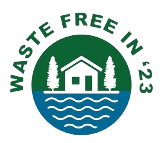By Sutradhar et al., 2021
Read the full paper here
Introduction
In many rural areas, farmers struggle with low crop yields due to poor soil health and the high cost of chemical fertilizers. This study explores an innovative solution—urine-enriched biochar fertilizer—as a natural, affordable, and sustainable alternative for vegetable farming. The research was conducted in Bangladesh, where local farmers tested this fertilizer and shared their experiences.
What is Urine-Enriched Biochar?
Biochar is a special type of charcoal made from burning organic materials like wood or crop residues at high temperatures with little oxygen. When mixed with urine, it absorbs essential nutrients like nitrogen (N), phosphorus (P), and potassium (K), creating a powerful natural fertilizer.
In this study:
- Cow urine was used instead of human urine due to cultural and religious beliefs.
- Farmers applied this fertilizer to vegetables like cabbage and kohlrabi.
- The impact on crop yield, cost savings, and farmer acceptability was analyzed.
Economic and Environmental Benefits
1. Economic Advantages
- Higher vegetable yields: Farmers saw a 60% increase in crop production, leading to better food security and income.
- Cost savings: This fertilizer is much cheaper than synthetic fertilizers, making farming more affordable.
- Women’s empowerment: Many female farmers found this method useful because it reduced their dependence on expensive, store-bought fertilizers.
2. Environmental Benefits
- Reduces chemical fertilizer use: Less reliance on synthetic fertilizers means fewer harmful chemicals polluting the environment.
- Waste recycling: Urine, which is usually discarded, is turned into a valuable agricultural resource.
- Soil health improvement: The biochar helps retain nutrients in the soil, improving long-term soil fertility.
Challenges & Future Potential
Some farmers faced difficulties in collecting enough urine and biochar materials. However, most were interested in continuing to use and expand this technique. Scaling up this method could significantly benefit small farmers in other regions, providing a sustainable and low-cost alternative to commercial fertilizers.
Conclusion
Urine-enriched biochar fertilizer is an effective, eco-friendly, and low-cost solution for improving vegetable farming. With proper support and education, this method can help farmers increase food production, reduce costs, and improve soil health, making agriculture more sustainable in Bangladesh and beyond.
Got questions?
